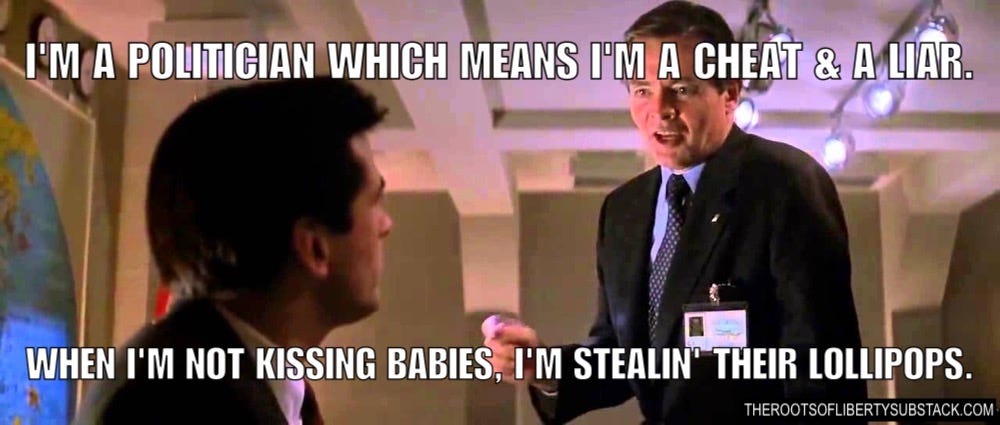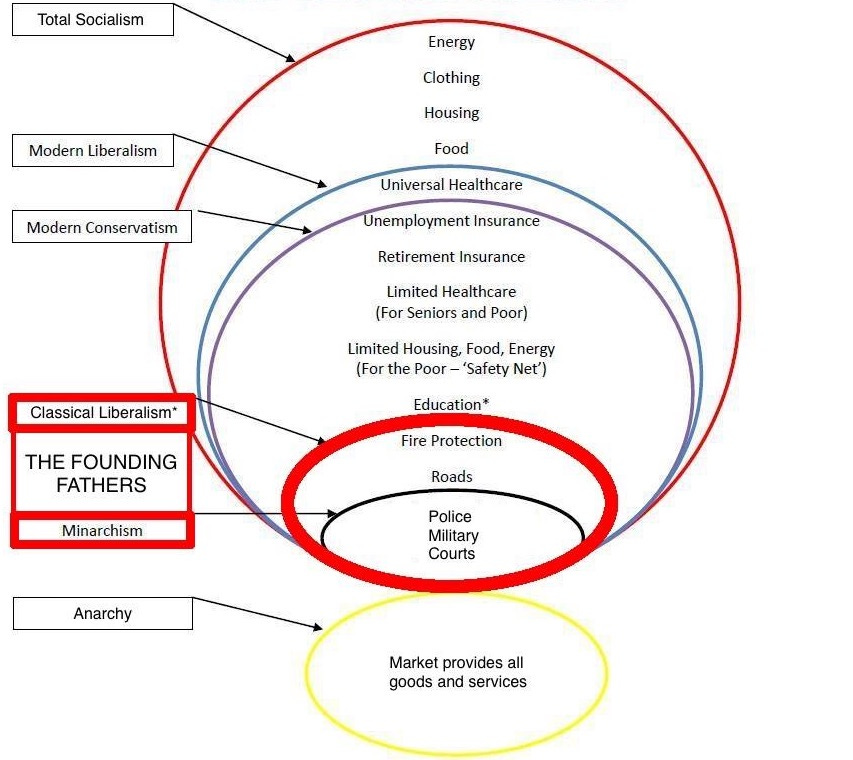There's an old joke - nay, an aphorism, if we are to be cynically honest - that asks, "how do you know if a politician is lying?"
You've heard the punch line: "his lips are moving."
To know his lips are moving, though, means that you're watching or listening to him. Politicians, being politicians, learn early on that their public faces must be managed and controlled. Thus, the sound bites, the curated events, and the art of the non-answer.
From time to time, however, since none of us are perfect, they slip up.
Thus the Kinsley Gaffe:
"[W]hen a politician tells the truth – some obvious truth he isn't supposed to say." - Michael Kinsley
That we often have to hope our elected representatives screw up in order to reveal or admit a truth is a sad indictment of politics, but political lying is as old as politics itself, so we're not going to cure that plague.
Another form of slip-up, one made more common by the growth of technology, is the "hot-mic moment." That's when a politician either forgets there's a microphone in range of his voice or mistakenly assumes it's not on. The press has always loved these, in a version of "if it bleeds, it leads" sensationalism, but nowadays reporters only seem to notice when someone from the other team screws up.
The third is misplaced trust, i.e. sharing something in confidence with someone who then tells the world about it. Ben Franklin warned us that "three can keep a secret, if two of them are dead," and Lord Varys shared the same sentiment about the near-impossibility of keeping stuff contained once it's been shared, no matter the confidence in the sharee. This is a "Kinsley Gaffe by proxy," if coining a phrase is warranted.
Behold, one of the great admissions by any President, past or present:
"Don’t underestimate Joe’s ability to fuck things up." - B. H. Obama
Starry-eyed optimists and Goo-Goos (but I repeat myself) want to believe that "Bumbling Biden" is an exception, an outlier in an otherwise highly capable realm of Best-and-Brightest.
https://en.wikipedia.org/wiki/Goo-goos
The real lesson from Obama's lament isn't about JoeB. It's about government in general.
As in:
Don't underestimate the government's ability to fuck things up.
One look at the landscape serves to verify.
Health care reform.
Policing reform.
Drug prohibition reform.
Immigration policy.
Climate-related energy policy.
Pandemic response.
Inflation remediation.
And that's just a few off the top of my head.
Some years ago, I asked (myself) the question, "when was the last time a government program came in on time and under budget?" The answer seemed to be the Hoover Dam, completed in 1936. While there may be some more recent example, I think we can all agree as to the generalization.
The obvious question is: if government is so universally bad at doing stuff, why do we keep empowering it to do more stuff?
Several answers come to mind, none of them heartening:
"I get me mine," i.e. people don't care about the broader inefficiency or cost of something if they receive personal benefit. This is more widely true than many of us might want to admit. Just look at any large company, and see how many "fief builders," or people who create their own little empires no matter that it works against the company's interests, there are.
Continued blind optimism. The hope that putting the right people in charge will finally achieve the "good-government" ideal.
Acts of good intent are seen as success in and of themselves, and bad outcomes are "not my fault."
Power. Many see power and control as ends unto themselves.
Tribal victory. For some, Conan's desire to "crush your enemies, see them driven before you, and to hear the lamentations of their women" is of greatest priority, no matter if doing so harms the nation.
In other words, humans aren’t wired to actually pull off Good Government, but they are wired to seek it. That’s part of the reason it took millennia to figure out a system like that written in the US Constitution.
I had a discussion the other day with a libertarian who supported the notion of a Universal Basic Income (UBI) as a replacement for the basketful of welfare programs we have on the books today. I briefly flirted with support for a UBI back in 2016, before my "who are we kidding" cynicism reminded me that, even if by some miracle such a program were properly crafted and enacted, it would not be long before the discarded mishmash of welfare programs started to get reinstated, on top of UBI. I will also only briefly mention the moral hazard of absolving the able-bodied from having to work for a living.
Similarly, I've had discussions about the FairTax, another starry-eyed optimistic idea that would replace the income tax with a consumption tax. There are myriad theoretical reasons why this would be better, including many positive incentives, but the cynic in me believes that, before long, we'd end up with both income and consumption taxes. Absent a repeal of the 16th Amendment (which authorizes federal income taxes) in conjunction with the implementation of the FairTax, you know that one of the normal political swing to the Left would put enough "we want more of your money" politicians in Congress to reinstate income taxes. As for that repeal, getting 2/3 of the House, 2/3 of the Senate, and 38 states to agree? Good luck with that.
Is there anything wrong with discussing UBI or FairTax as goals? They both suffer from the same wildly unrealistic expectations that keep people hoping that government can be "done right."
It can't. The only answer is to make it incrementally smaller, to chip away at the seemingly endless list of things that it does that rise above the most basic of responsibilities.
Grand, sweeping reforms never work out as intended. When government is this big and complicated, it provides too many opportunities and incentives for the self-interested to divert from and corrupt even the noblest of goals, and their motivations, being concentrated, overwhelm the more diffuse motivations of reformers.
The simple reality that government being full of people as flawed as (and often more flawed than) you and me tells us of the futility of high hopes. As Milton Friedman asked Phil Donahue, "tell me where in the world you find these angels who are going to organize society for us?"
Joe's “ability to fuck things up” isn't an outlier or a skew data point. It's emblematic of government in general - Joe's portrait should be in the dictionary next to "Government." It's time we stop looking to government to fix this or remedy that or take responsibility for all these aspects of our lives, be more skeptical of giant "reforms," and simply say "do less."





I lived in the Republic of Ireland when the government proposed a Value Added Tax to "reduce and evntually replace the income tax". It was sold in all the papers and on the government media as giving far greater services and more money in the hands of families. Of course once the VAT was installed, you can guess, there was no change to income tax. The interesting part is the fatalism of those who voted for VAT. The universal opinion seemed to be, "yeah, well, we knew THAT was going to happen." Yet they went along with allowing it to happen. Like Obama Care I suppose. We are doomed by our majorities to be led by the nose.
As a conservative Christian (but not one with pretensions to being a saint), I fear that any scheme of humanity be it government or business or secular or religious is tainted by our flawed nature. John Adams wrote “Our constitution was made only for a moral and religious people. It is wholly inadequate to the government of any other.” When the people go bad so does the nation when private desires trump (no pun intended) public virtues. Our nation needs a Cincinnatus. Instead, we have the same group of clowns.